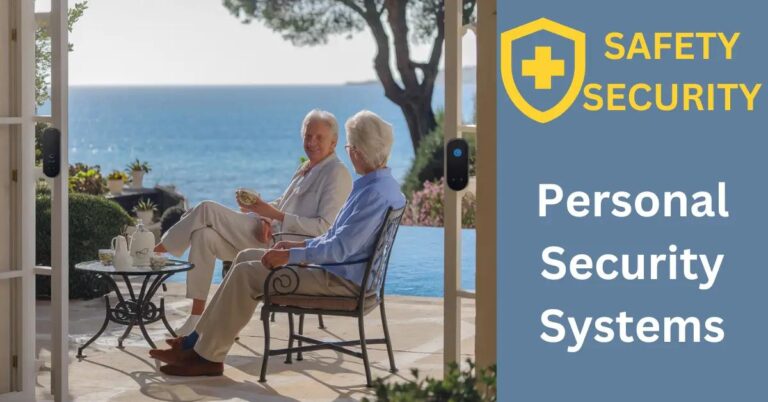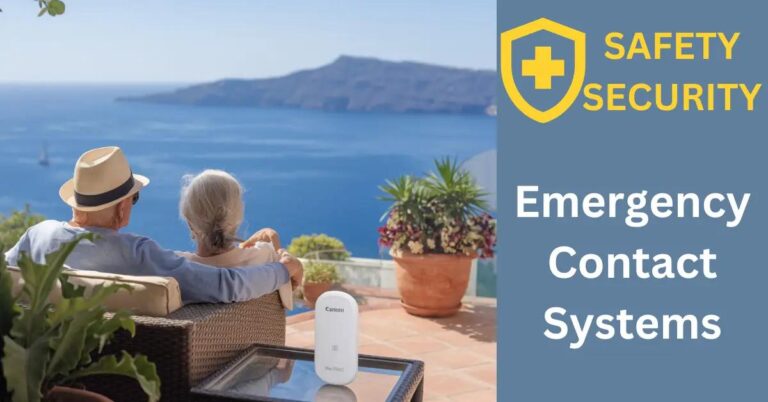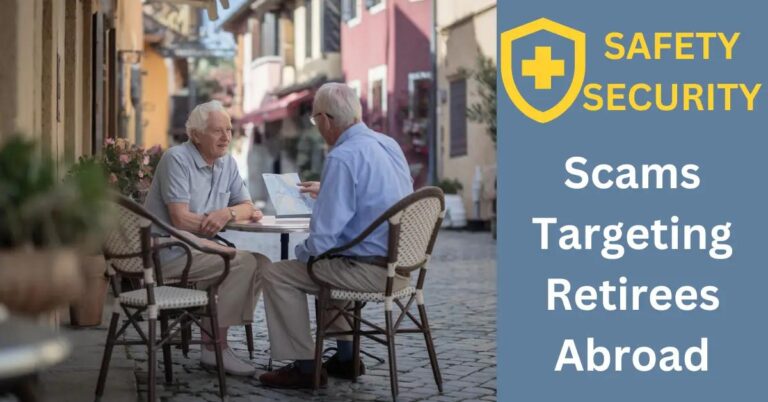TL;DR:
- Different countries have specific emergency numbers (e.g., 112 in Europe, 110 in Japan for police).
- Dial exit codes (e.g., 011 from the U.S.) to call abroad.
- Save emergency numbers before traveling; research online for country-specific contacts.
- Enroll in the Smart Traveler Enrollment Program (STEP) for safety alerts.
- In medical emergencies abroad, remain calm, find local hospitals, and use the embassy for assistance.
- Carry local currency; know useful phrases in the local language.
- U.S. embassies aid in crises, help replace lost passports, and offer legal support.
- In financial emergencies, contact the U.S. embassy for assistance.
- Diversify access to funds: use cash, credit, and traveler's checks.
Picture this—you’re in a new country, soaking in the culture, when crisis hits. Do you know who to call or where to go? As a global nomad, being prepared for emergencies is crucial. "Emergency Services and Access Abroad: What Should You Know?" is your guide to navigating dire situations in foreign lands. Discover key emergency contacts, how to handle medical situations, or reach out for consular assistance. Stay safe and informed!
Emergency Services and Access Abroad: What Should You Know?
Can you call emergency services in another country? Yes, you can, but you need to know the right number. Each country has its own emergency phone numbers. These numbers are vital for calling in a crisis. For example, in Europe, you can dial 112 to reach emergency services. But in Asia, like in Japan, the number is 110 for police and 119 for fires and ambulances.
Understanding international dialing codes for emergencies is important. Before you can call, you might need to dial an exit code from your phone. For example, if using a U.S. phone, you need to dial 011 first to reach other countries. Not knowing this could delay help.
How do you find global emergency hotlines? You can find them online or in travel guides. Websites with emergency contact numbers abroad are available and helpful. They often list numbers by country and type of service needed.
Key contacts include region-specific emergency numbers. In Africa, each country has its own number. A good tip is to look up the numbers for each country you plan to visit. Some numbers cover all emergencies, while others have separate lines for police, fire, and medical aid.
The importance of saving emergency numbers before travel cannot be overstated. Put these numbers in your phone and also write them down. In an emergency, every second matters. Having the number on hand can save lives.
Planning ahead makes calling for help faster and easier when traveling. Emergency situations can be stressful, but having contact details ready provides peace of mind. Preparing before you go means you're ready to get assistance quickly when needed.
What to Do if You Have a Medical Emergency Abroad?
First, stay calm. Check if there's a nearby hospital. Most countries have systems to help. Use your phone to find the embassy. They often know the nearest medical facilities.
For telemedicine services abroad, your regular app may work overseas. Many doctors can talk with you via video call. This is very useful if you can't move. Remember to contact your healthcare provider before traveling.
Knowing about local healthcare is important. Some places ask for cash first because insurance is not always accepted. It's wise to carry some local money just in case. Also, learn a few phrases in the local language. "Doctor," "hospital," and "help" are words you'll need.
Check if your insurance covers health emergencies abroad. Before you travel, call your provider. Ask if they have special arrangements in the country you're visiting. This knowledge saves time and worry.
Countries have different processes for medical help. Some use a European emergency number, while others have their own. Save it to your phone before arriving. Understanding how healthcare works abroad can ease stress.
Finally, look for options that fit your needs. Some foreign medical services are built for travelers. Organizations like this often offer membership cards showing your medical history. This can be helpful in emergencies. Understanding the local healthcare system can protect you when the unexpected happens.
Embassy Support and Consular Services Abroad
Where can a United States citizen seek emergency assistance while traveling or living abroad? If you face an emergency, your first stop should be the local U.S. embassy or consulate. They offer help to U.S. citizens in crisis situations. It's vital to know when and how to contact them.
Embassies and consulates provide many services. These include help if you lose your passport or need travel advice during a crisis. They also help with legal issues and offer support in case of accidents or illness. Knowing this, you can feel safer and more prepared.
One key service is the Smart Traveler Enrollment Program (STEP). This is a free program. It lets you enroll your trip with the nearest U.S. embassy or consulate. In a crisis, STEP helps them reach you faster with safety information and help.
When you need consular assistance, expect dedicated service. The staff can guide you to medical help, contact family in emergencies, or even offer evacuation help if needed. They hold a wealth of knowledge and resources for U.S. citizens abroad. They can provide up-to-date advice and support in many situations.
Remember, understanding how to access these services can make a big difference. Stay prepared by knowing how to reach your embassy and what support they offer. Keep their contact info handy at all times. This ensures that the right help is just a call away whenever you need it.
Emergency Preparedness for Travelers
Should I enroll in the STEP program? Yes, enrolling in the STEP program can make travel safer. The Smart Traveler Enrollment Program (STEP) gives you updates from the U.S. embassy. You will know right away if something happens near you. Understanding different alerts and warnings helps you avoid possible dangers.
Benefits of enrolling in STEP for safety alerts: You will get updates about your area. Alerts tell you about strikes, bad weather, or other danger. This lets you plan and stay safe. Safe travelers keep informed of local affairs.
How to prepare for travel emergencies: Make a small kit. Put in first aid, a flashlight, and copies of important papers. Write down local emergency numbers. Know where nearby safe places are.
Tips for staying informed during crises abroad: Check news and embassy updates often. Local news can show small issues before they grow. Keep your phone ready for alerts. Talk with locals or friends to know the area's mood.
Creating a personal emergency plan before departure: Decide who you will call in a crisis. Share plans with family before you leave. Know routes to safe zones or shelters. Practice speaking the local language basics in an emergency. Being ready makes problems feel smaller.
Planning makes travel safer and more fun. Being ready helps you enjoy the world worry-free.
Financial Emergencies While Traveling
What to do if you get stuck in another country with no money? First, keep calm. Find a safe spot and assess your situation. Look for help from nearby travelers or locals. Explain your situation honestly and see if they can help.
To access U.S. emergency financial assistance abroad, contact the U.S. Embassy or Consulate. They offer support and guidance. They can connect you with loved ones back home. Sometimes, they provide temporary loans for urgent needs. This is crucial if you cannot get money any other way.
The Office of Overseas Citizens Services is another valuable resource. They assist in critical situations, like when all regular options fail. They help with limited, short-term money services. They also provide other support for U.S. citizens in distress.
Planning and managing funds well can avoid these situations. Always have emergency contact numbers and a backup plan. Inform someone at home about your travel details and financial standing. Make sure you have access to your bank accounts. Keep track of exchange rates to understand the local money value.
It’s wise to spread your funds across different sources. Use cash, credit, and even traveler's checks. Don't keep all your money in one place. This way, if one resource fails, another can save you. Set reminders to review your money situation regularly. This ensures you stretch your budget and avoid surprises.
Planning far trips can be thrilling but comes with risks. Always prepare for the unexpected. A little foresight can save a world of trouble. Knowing how to handle money shortages ensures safer and stress-free adventures abroad.
Conclusion
You've got the tools you need to stay safe abroad. We've talked about how important it is to know emergency numbers, access medical help, and connect with your embassy. You know why the STEP program is crucial and how to handle financial troubles when far from home. Remember, being prepared means peace of mind. Keep these tips in mind for any trip, and you'll be ready for anything. Safe travels!







